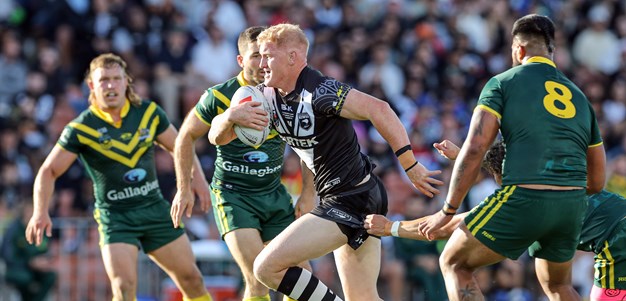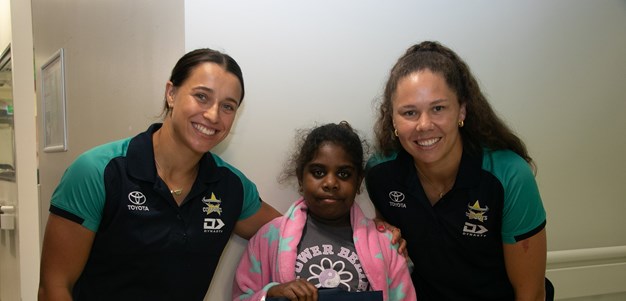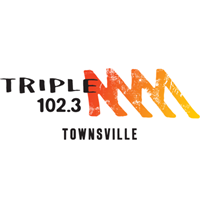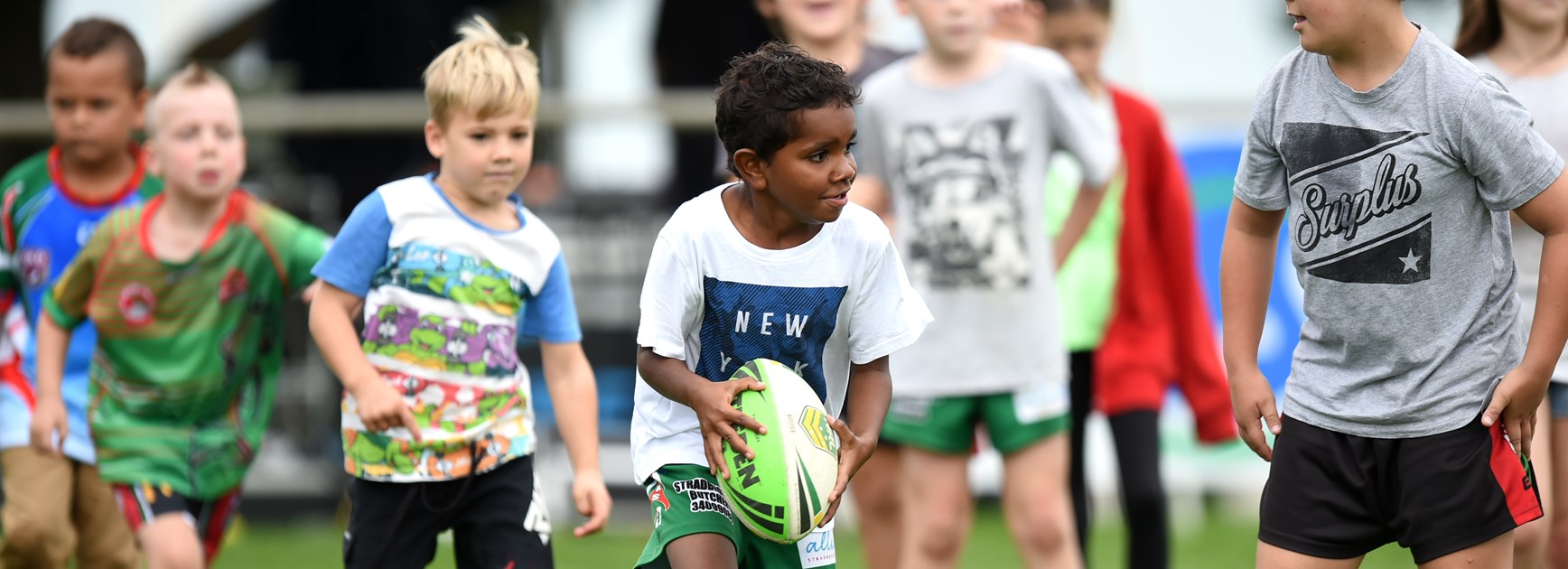
Former international, QRL board member and NRL360 host Ben Ikin believes modifications to junior competitions being trialled across South-East Queensland and Victoria next season will have the most significant impact on player development since the introduction of Mini and Mod League in 1982.
Ikin, who was Queensland's youngest Origin player after being selected as an 18-year-old in 1995, is a member of the steering committee which devised the Player Development Framework aimed at ensuring rugby league is a sport of choice for more families and improving retention rates among those who play.
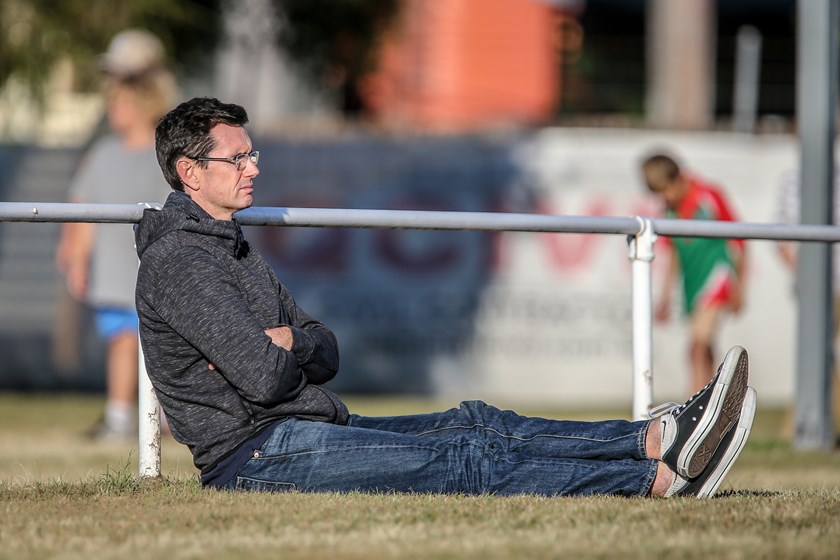
The key changes, which are set to be introduced Australia-wide in 2020, include:
- The game's youngest players being taught safe tackling techniques before being introduced to contact;
- An 18-month registration window to enable juniors born in the second half of the year to play in the age group below, and;
- No finals until Under 13s to ensure the focus for younger players is on fun and learning skills.
"It's an exciting time for the game," Ikin said. "Churn rates in most junior sports are an issue, but they tend to be a little higher collision sports. If we can make some changes to the game that ensure rugby league is a safe environment for those who play it, and you can still have a stack of fun doing it, then that is a fantastic outcome.
"My interest in this subtle re-design of the junior game is very personal. I've got two boys that love rugby league, but both are in the group who tried and left for reasons that are fixable.
"The game went through a big overhaul when Mini and Mod League was introduced, and the changes back then were about protecting the game and its future. The same is true today."
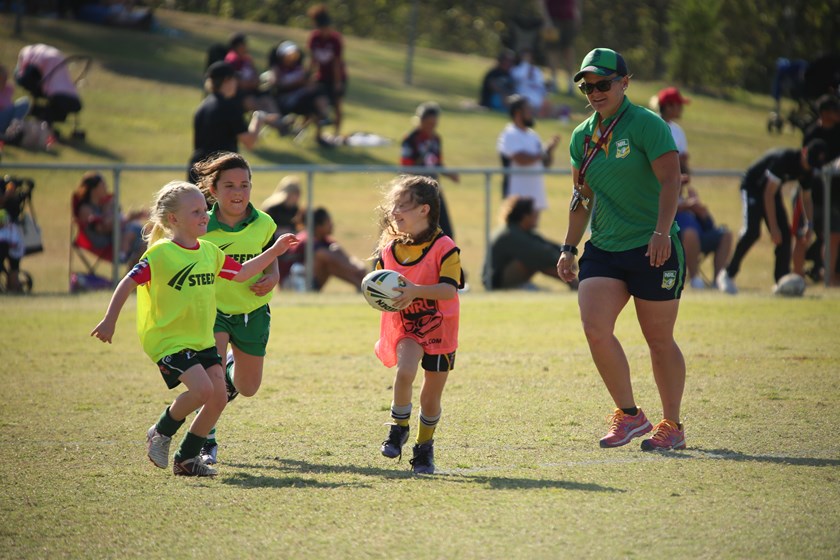
The new Player Development Framework is based on the findings of academic research and studies, as well as trials in the Mackay JRL and CRL Group 9 and 20 competitions, with the focus on providing an environment which encourages early and ongoing engagement for young players.
Surveys have found that 25% of players aged 6-12 who stop playing do so because of a negative experience and the changes are intended to discourage a win-at-all costs mentality at grassroots level while negating the impact of Relative Age Effect and varying stages of physical maturity among juniors.
University of Queensland Professor Cliff Mallett, a former Olympic track-and-field coach whose work was credited with helping the Cowboys win the 2015 premiership, said there were ongoing benefits by ensuring the game was more inclusive at grassroots level.
"This is about being proactive and saying how can we improve the quality of the product so we can keep kids in sport long enough to actually benefit from sports participation, not only in terms of their performance and their competency in the sport, but in helping young people develop," Mallett said.
"If people have positive sporting experiences they are more likely to contribute as coaches, officials and administrators.
"Central to what we are proposing is that we need to be a little bit patient before we start giving kids more deliberate practice and formal training sessions because you are shifting the pendulum away from play to work and they are emotionally, developmentally and socially not ready for that."
Staged introduction to tackling
NRL Participation Strategy and Projects manager James Hinchey said the emphasis would initially be on catching, passing and running skills, with young players to be taught safe fall and tackle techniques before tackling is introduced.
"We have got clear evidence that this can be a positive impact," Hinchey said.
"We have got market research that tells us there is almost double the appetite for tag in those age groups as there is for tackle.
"From a skill acquisition perspective, the game is prioritising the tackle - it is not taking it away. It is putting an emphasis on making sure kids feel competent and confident in not just tackling, but also being tackled.
"This will be through a six-session program targeted towards improving kids in terms of their competence and confidence to keep them in the game longer by getting them into a version of the game where they don't have to worry about the biggest barrier to entry, which is the tackle."
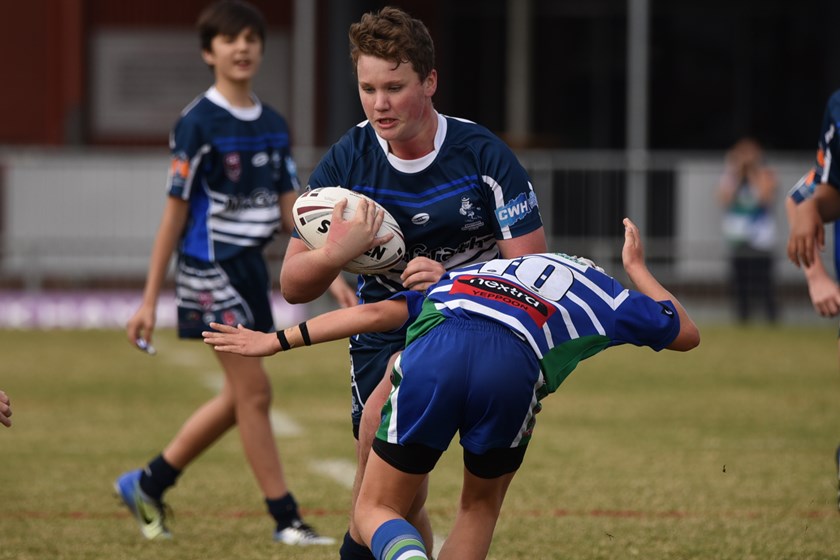
18-month registration windows
Statistics show those born in the first quarter of the year have the highest participation numbers, with registrations for players born between October 1 and December 31 being the lowest. They are also the most likely to give the game away.
To address this imbalance, known as Relative Age Effect (RAE), registration periods for players aged between six and 19 will be increased from 12 months to 18 months so those born after June 30 can play in the age group below.
Surveys of players involved in trials in the Northern Rivers and Riverina have been encouraging.
"Those kids have got greater confidence, they are having more involvement and getting a better go in the game," Hinchey said.
"The bigger kids, who are more capable and might have up to 12-months advantage compared to kids born at the back end of the year, may not necessarily be better players. It is just that they have matured quicker or they have the advantage of time. If you gravitate towards them they receive all the opportunity."
No finals until Under 13s
To ensure the focus is firmly on fun and development for young players, finals will be phased in from Under 13s.
"People think that without grand finals there won't be competition, but kids compete when they go down the park and split into six aside or four aside. That is just the nature of kids," Ikin said.
"This is about providing a product for the kids that lessens the impact of the parents and coaches who get over-competitive at way too young an age.
"There is a stack of good people in rugby league, who volunteer and create a great experience for young kids, but there is also a number who don't do that.
“The game has to be the grown up in the room and make sure the version we put out there minimises the poor behaviour that drives kids away."
The testing phase of the framework will be introduced next season in the Brisbane, Gold Coast and Ipswich competitions, which boast about 20,000 registered juniors between them, as well as Victoria, which has up to 6,000 junior players.

